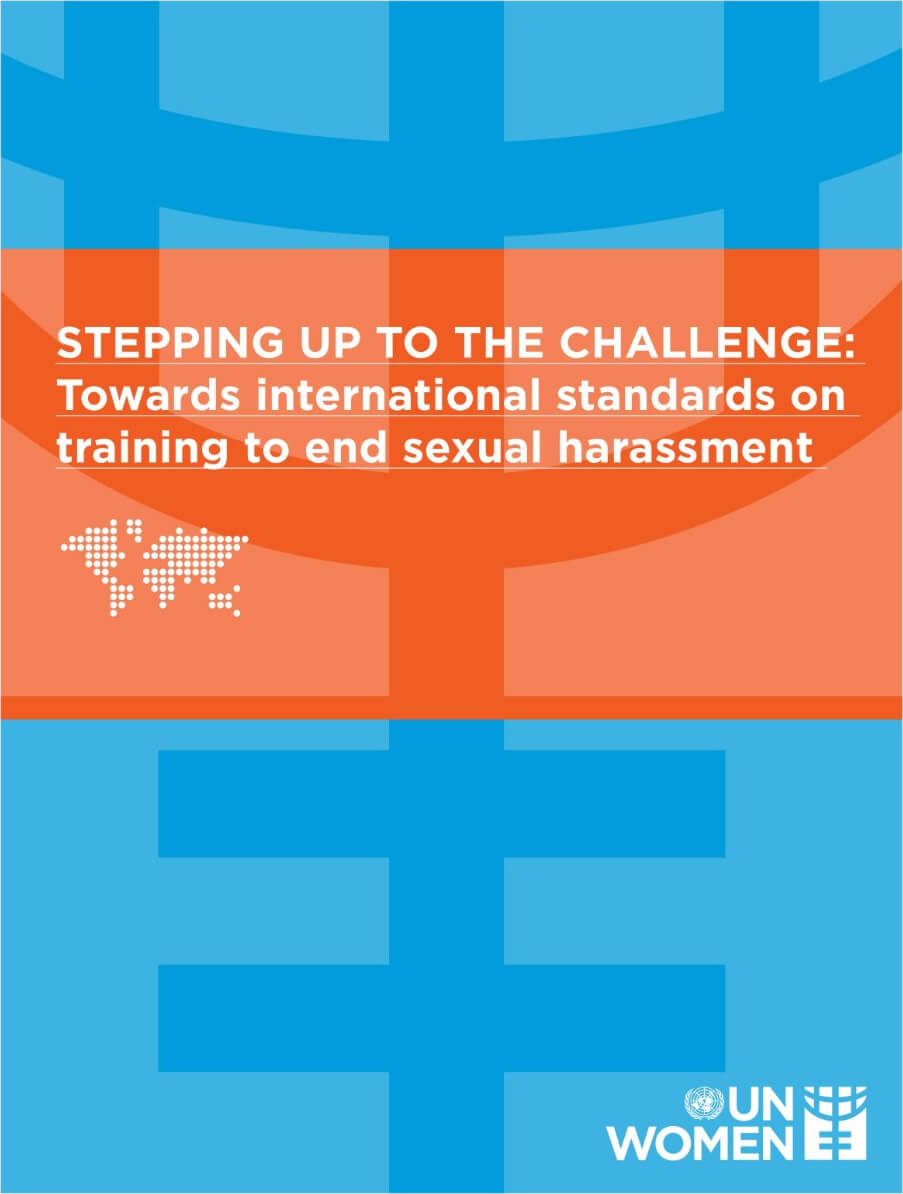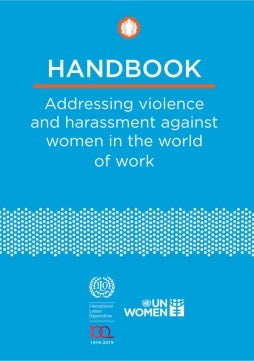Stepping up to the challenge: Towards international standards on training to end sexual harassment
UN Women’s publication “What will it take? Promoting cultural change to end sexual harassment” (2019) identified six areas of work to achieve lasting cultural change:
- making training effective,
- victim focused work,
- making reporting rational,
- zero tolerance,
- collective ownership, and
- organizational transparency.
This publication focuses on training as preventive intervention, particularly in the workplace. Adequate training dislodges entrenched and discriminatory ideas on gender—fundamental to promote cultural change to end sexual harassment. Evidence has shown that current training on sexual harassment is largely ineffective and sometimes appears to prompt resistance in some (male and female) trainees. This paper analyses what makes training against sexual harassment both effective and transformative.
The paper begins with a short summary of what we know about the scale and nature of sexual harassment and on sexual harassment training, followed by an analysis of knowledge gaps and issues that explain its limited effectiveness. It then discusses current thinking on what makes training effective, proposing a new framework. Transformative efforts, the paper argues, should contain two steps:
- roundtables across the workforce and key stakeholders to build a value-based approach to sexual harassment and
- an audit/culture check to establish the extent and forms of sexual harassment in an organization with training being the link between them.
Training must fit the specific context, be carried out by experts in gender inequality, and be conducted face to face.










